Three consecutive flash photographs of a travelling wave on a string wave on a string are reproduced in the figure here. The following oberservation are made. Mark the one which is correct. (Mass per unit length of the sting =3g/cm.)

displacement amplitude of the wave is 0.25m, wavelength is 1m, wave speed is 2.5m/s and the frequency of the driving force is 0.2/s.
displacement amplitude of the wave is 2.0m, wavelength is 2m, wave speed is 0.4m/s and the frequency of the driving force is 0.7/s.
displacement amplitude of the wave is 0.25m, wavelength is 2m, wave speed is 5m/s and the frequency of the driving force is 2.5/s.
displacement amplitude of the wave is 0.5m, wavelength is 2m, wave speed is 2.5m/s and the frequency of the driving force is 0.2/s.
The correct Answer is:C
Clear from the figure

Topper's Solved these Questions
- WAVE ON STRING BOOK - RESONANCECHAPTER - WAVE ON STRING EXERCISE - Exercise- 2 PART I
21 Videos
- WAVE ON STRING BOOK - RESONANCECHAPTER - WAVE ON STRING EXERCISE - Exercise- 2 PART II
19 Videos
- WAVE ON STRING BOOK - RESONANCECHAPTER - WAVE ON STRING EXERCISE - Exercise- 1 PART I
23 Videos
- TRAVELLING WAVESBOOK - RESONANCECHAPTER - TRAVELLING WAVESEXERCISE - Exercise- 3 PART II
7 Videos
- WAVE OPTICSBOOK - RESONANCECHAPTER - WAVE OPTICSEXERCISE - Advanced Level Problems
8 Videos
Similar Questions
Two strings of the same length but different mass per unit length are used to suspend a rod whose density varies as ρ=ρ0[1+αx] as shown in the figure. The frequency of standing waves produced in the string is in the ratio n:1, when both the strings are vibrating in their fundamental mode. If the mass per unit length of string (l) is μ0, calculate the mass per unit length of the other string.
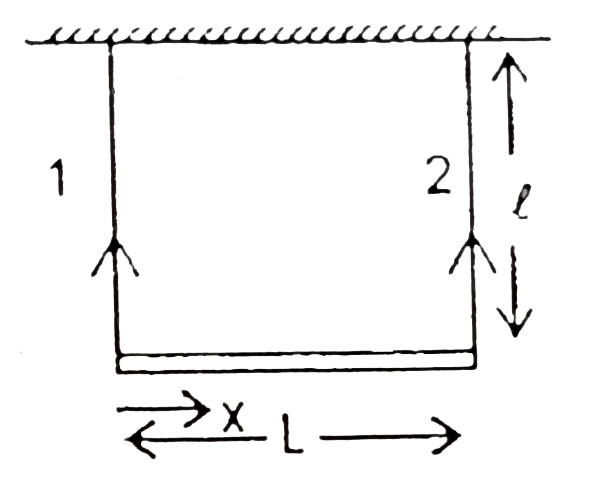
View SolutionThe speed of transverse wave v in a stretched string depend on length tension T in the string and liner mass density (mass per unit length). μ. Find the relation using method of dimensions.
View Solution
Knowledge Check
At any instant a wave travelling along the string shown in figure. Here, point A is moving upward. Which of the following statement is true?
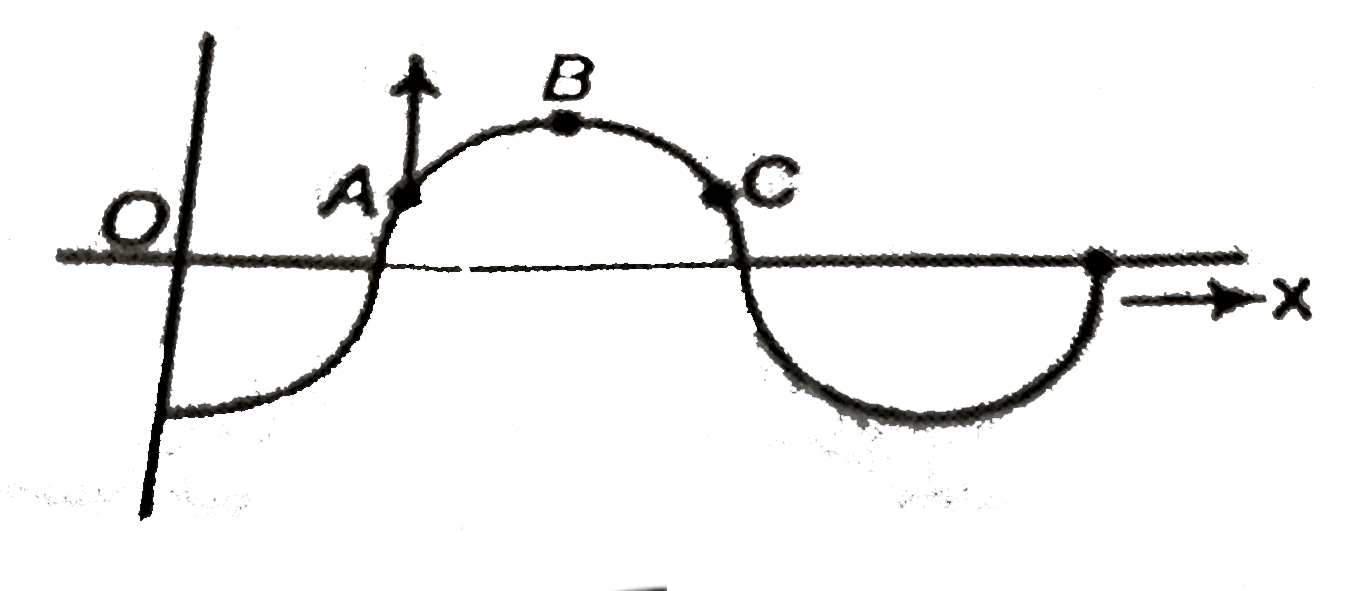 AThe wave is travelling to the rightBThe displacement amplitude of wave is equal to displacement of B at this instantCAt this instant C also directed upward.DNone of the above
AThe wave is travelling to the rightBThe displacement amplitude of wave is equal to displacement of B at this instantCAt this instant C also directed upward.DNone of the aboveThe figure represents two snaps of a travelling wave on a string of mass per unit length μ=0.25kg/m. The first snap is taken at t=0 and the second is taken at t=0.05s.
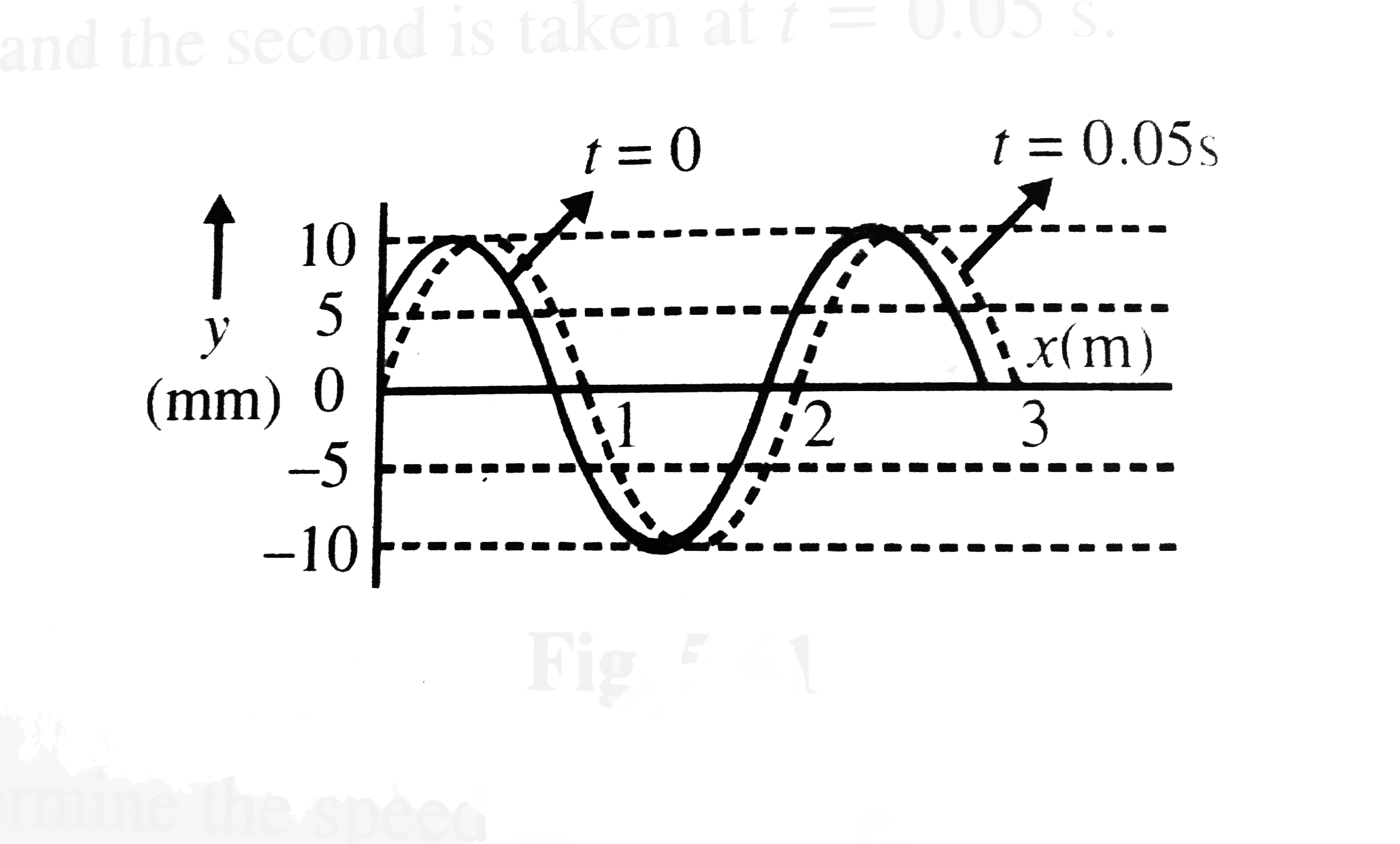
Determine the tension in the string.A25/3NB25/7NC5ND25/9NThe figure represents two snaps of a travelling wave on a string of mass per unit length μ=0.25kg/m. The first snap is taken at t=0 and the second is taken at t=0.05s.
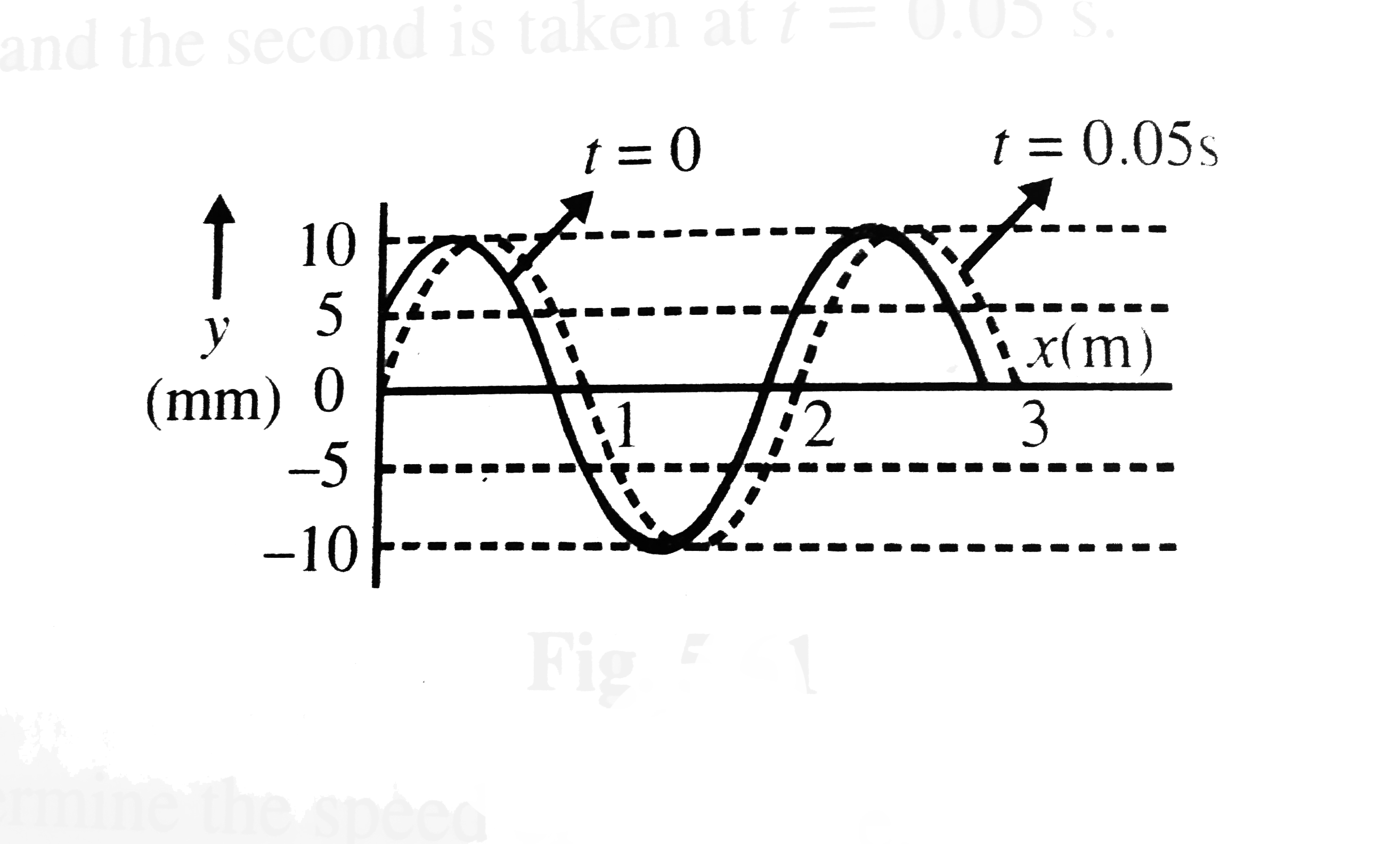
Determine the equation of the wave.Ay10sin2πx−10/3πtπ/6Byπ10sinππx−π10/3ππtπππ/3ππCyπ10sinππx−π10/3ππtπππ/6ππDyπ10sinππx−π5/3ππtπππ/3ππ
The figure represents two snaps of a travelling wave on a string of mass per unit length μ=0.25kg/m. The first snap is taken at t=0 and the second is taken at t=0.05s.
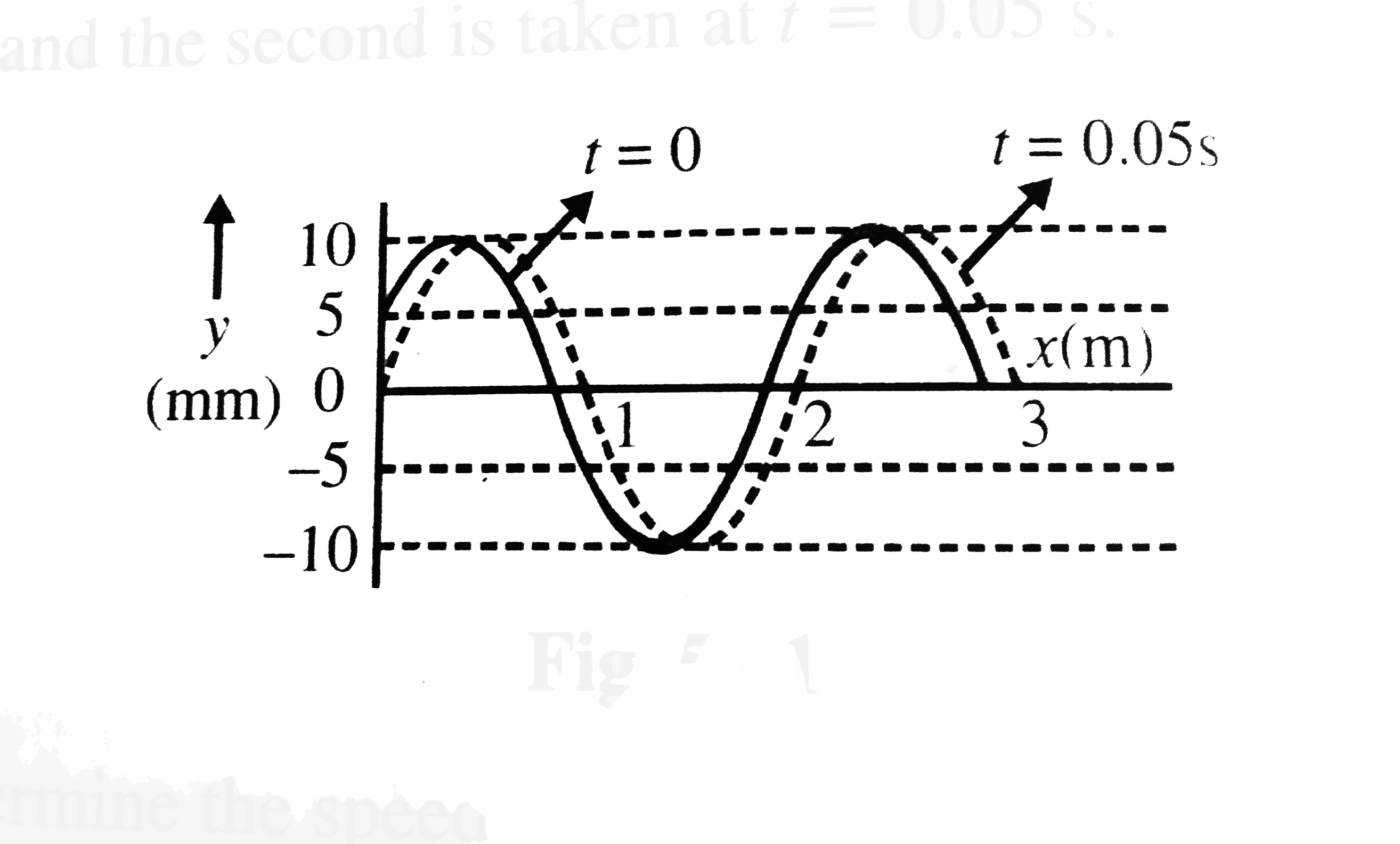
Determine the frequency of the wave.
View SolutionThe figure represents two snaps of a travelling wave on a string of mass per unit length μ=0.25kg/m. The first snap is taken at t=0 and the second is taken at t=0.05s.
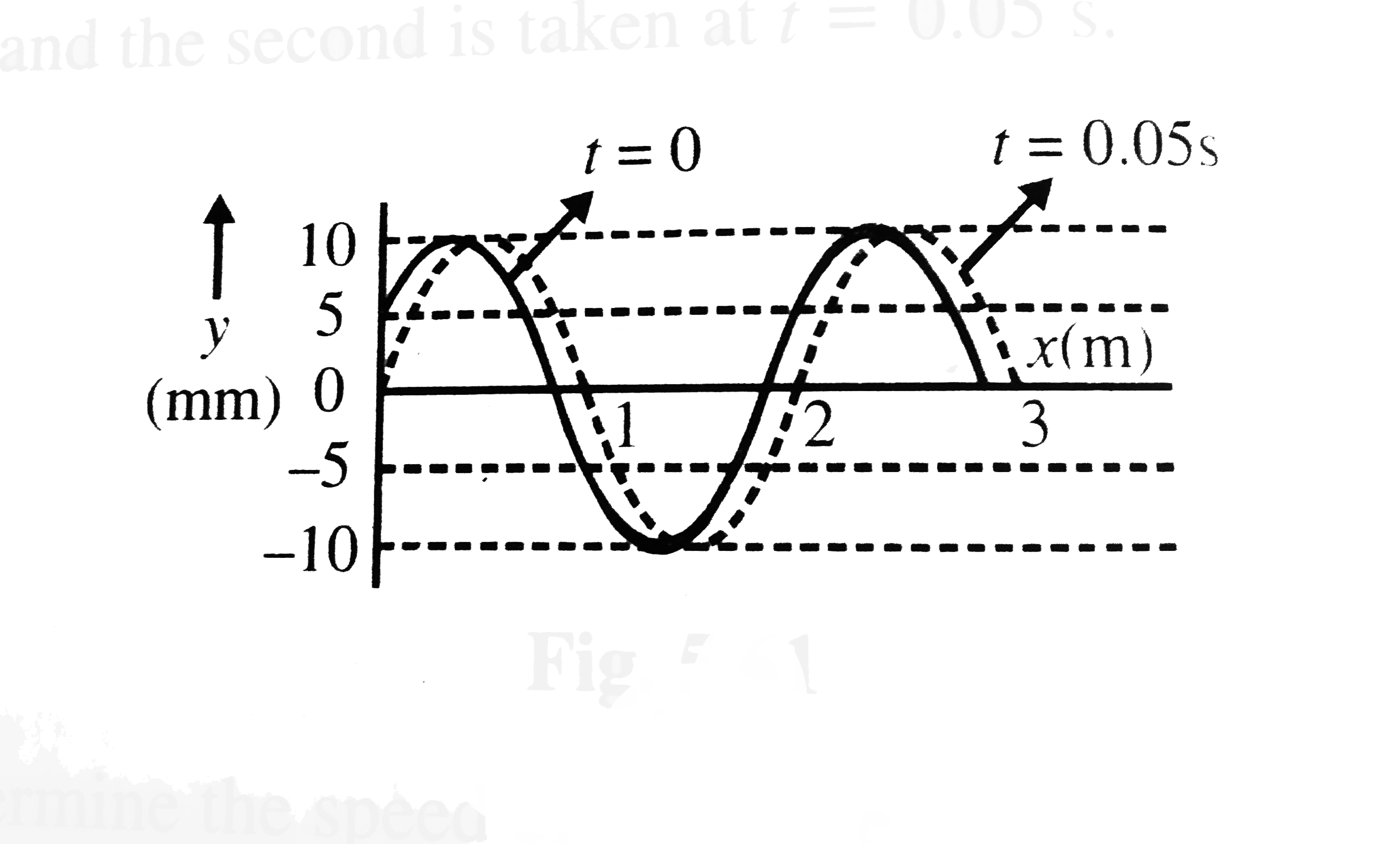
Determine the speed of the wave.
View SolutionThe figure represents two snaps of a travelling wave on a string of mass per unit length μ=0.25kg/m. The first snap is taken at t=0 and the second is taken at t=0.05s.
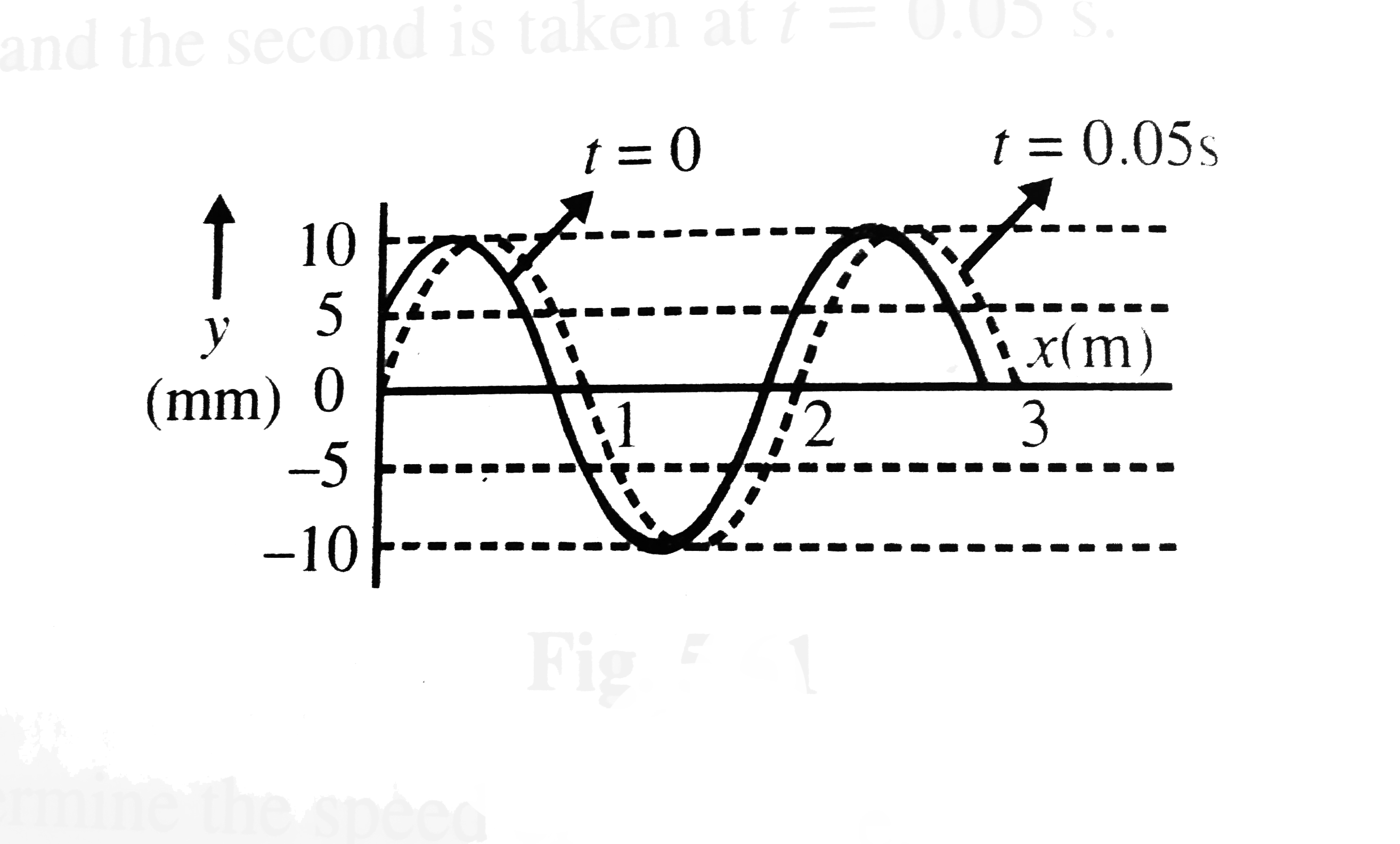
Determine the maximum speed of the particle.
View SolutionA string fixed at both ends has consecutive standing wave modes for which the distance between adjacent nodes are 18 cm and 16 cm respectively. The length of the string is -
View SolutionA string fixed at both ends has consecutive standing wave modes for which the distances between adjacent nodes are 18 cm and 16 cm respectively. The minimum possible length of the string (in cm) is:
View Solution